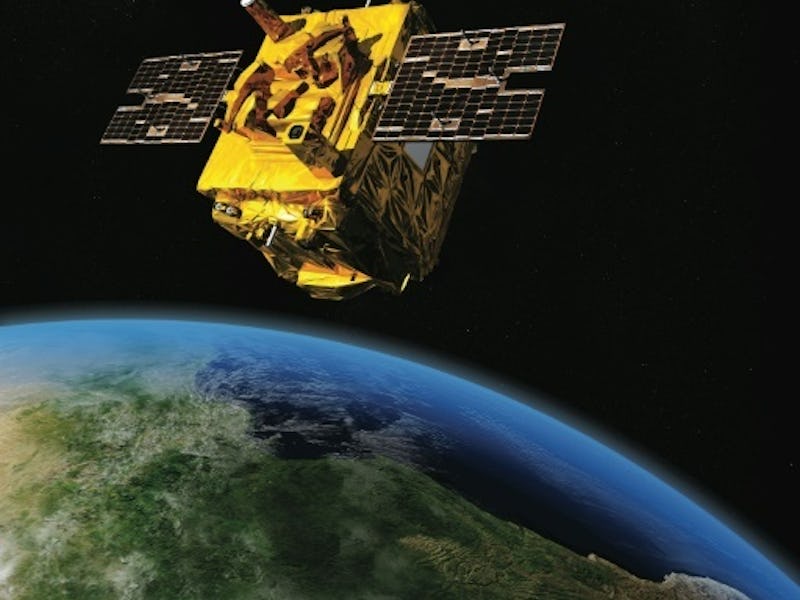New Satellite Will Put Einstein's Theory of Relativity to Test
French scientists will help confirm or raise questions about a 100-year-old principle of physics.

Einstein’s theory of general relativity is over a century old — and although by now it is considered a pillar of modern physics, there’s still a lot more to learn. So French scientists launched a new satellite — the “Microscope” orbiter — to put the ol’ theory through some more testing and get a better understanding of exactly how it governs the physics of our universe — including the nature of gravity.
The spacecraft is fitted with two different pieces of metal: titanium and platinum-rhodium alloy. The goal is to observe how these metals behave in orbit. The zero gravity environment provides a unique environment for allowing us to understand relative motion as if they were in perpetual free fall — without being affected by the Earth’s gravity.
The theory of relativity posits that two objects in perfect free fall would move exactly the same. This is called the equivalence principle. If the objects acted otherwise, that would essentially violate what’s established by Einstein’s theory and would — to put it lightly — fuck up the physics community’s shit.
Microscope was launched aboard a Russian Soyuz rocket from French Guiana that went up to space on Monday. The $147 million satellite, which will settle into Earth’s orbit soon enough, is fitted with instruments that will allow it to observe motion with 100 times more accuracy than what is possible on Earth. Basically, both metals will be “dropped”, so to speak, and their motion will be measured.
If any significant difference is observed, it would basically show that the equivalence principle is false — “an event that would shake the foundations of physics,” France’s CNES space agency says on its website.
“We shall then know that Einstein’s theory of general relativity is not the whole story of gravity — that there are other forces contributing to it,” French physicist Thibault Damour told reporters in Paris last week.
So far, Einstein is having a banner year, what with gravitational waves having been discovered and validating other parts of this theoretical work. If it turns out the equivalence principle is false, however, it would throw in disarray a major chunk of his work and turn the physics community upside-down. The pursuit of science is impartial, but needless to say what the French research team managing Microscope finds out could set what we know about the laws of the universe back by literally a century.